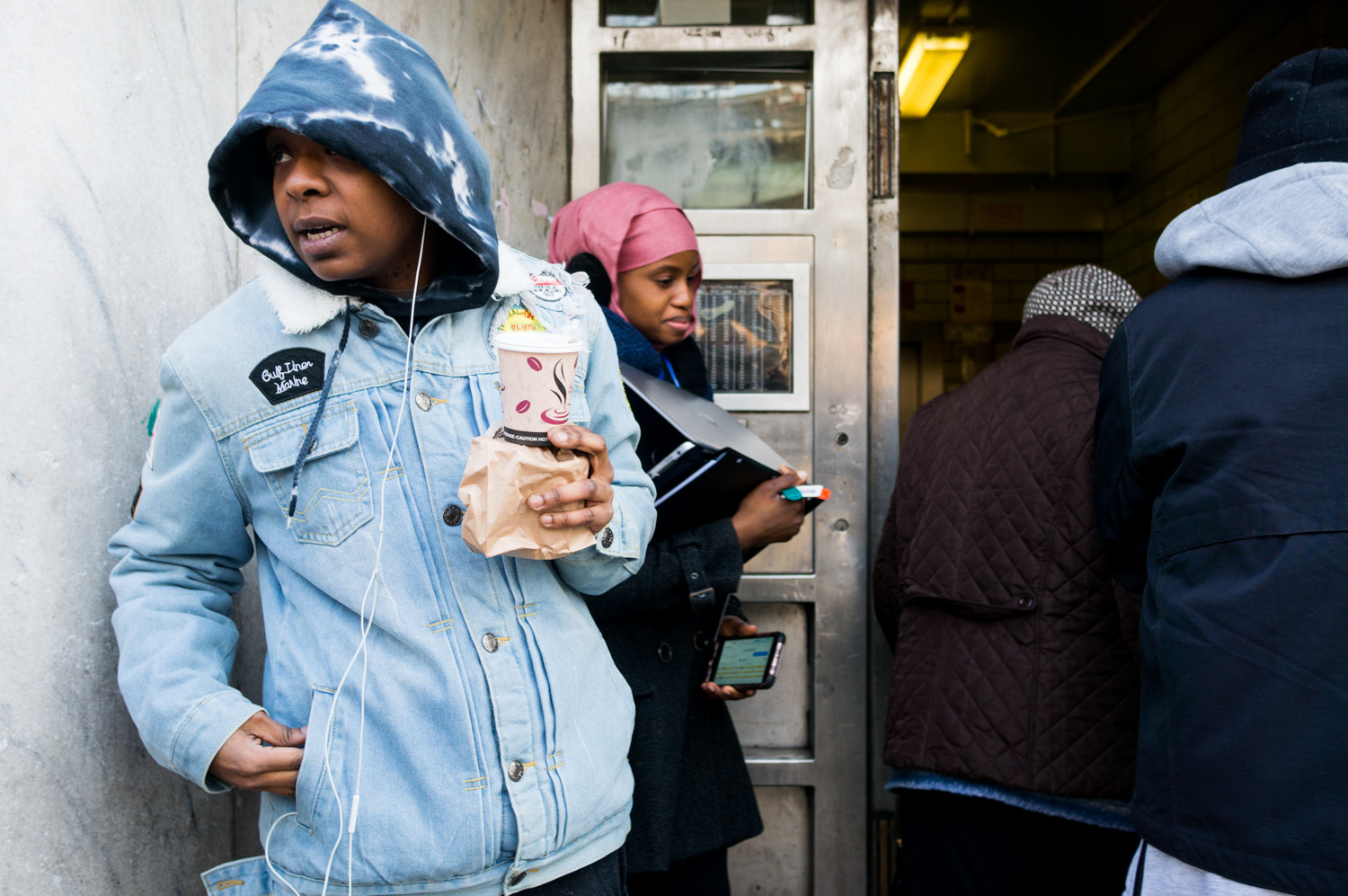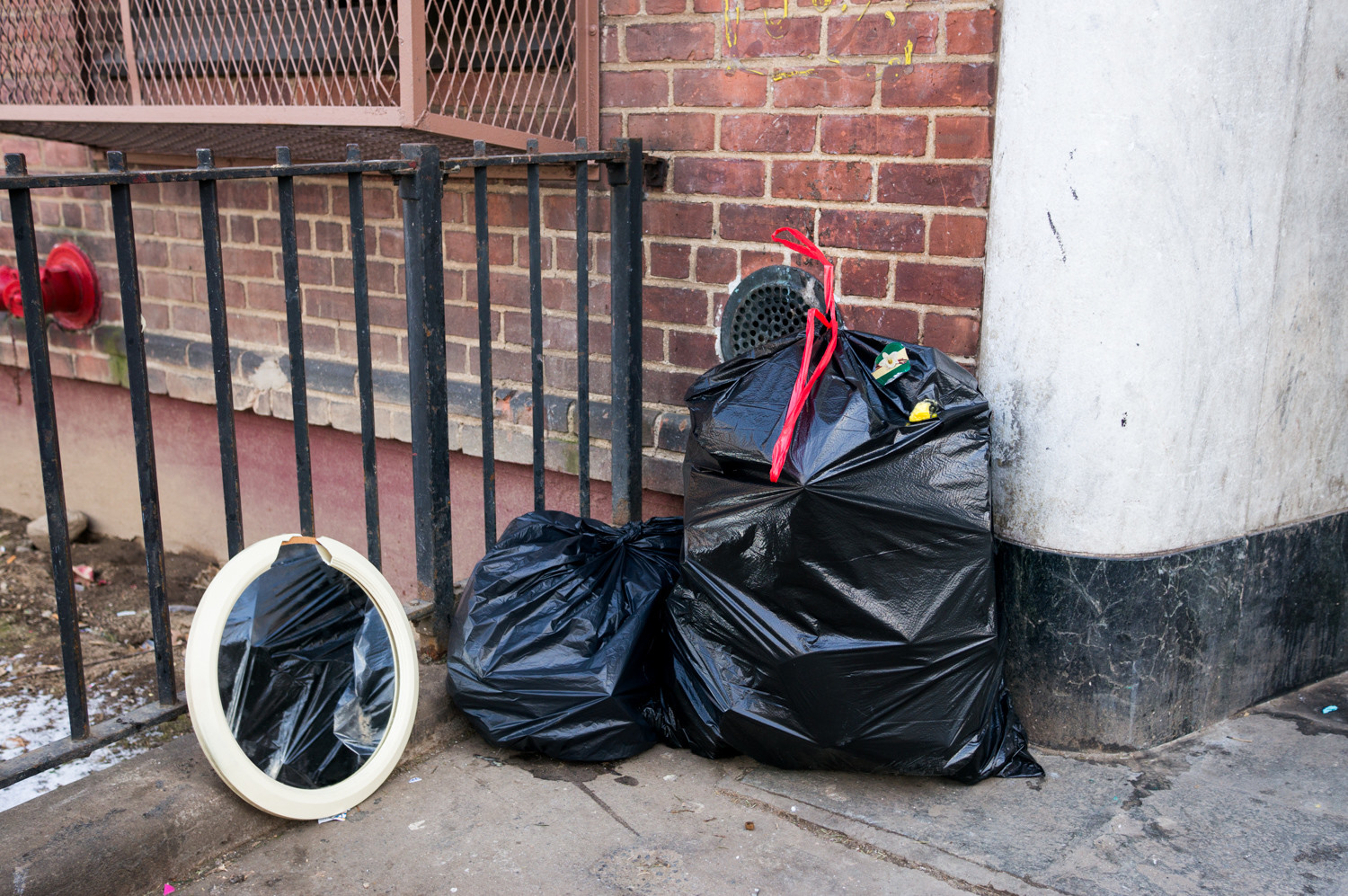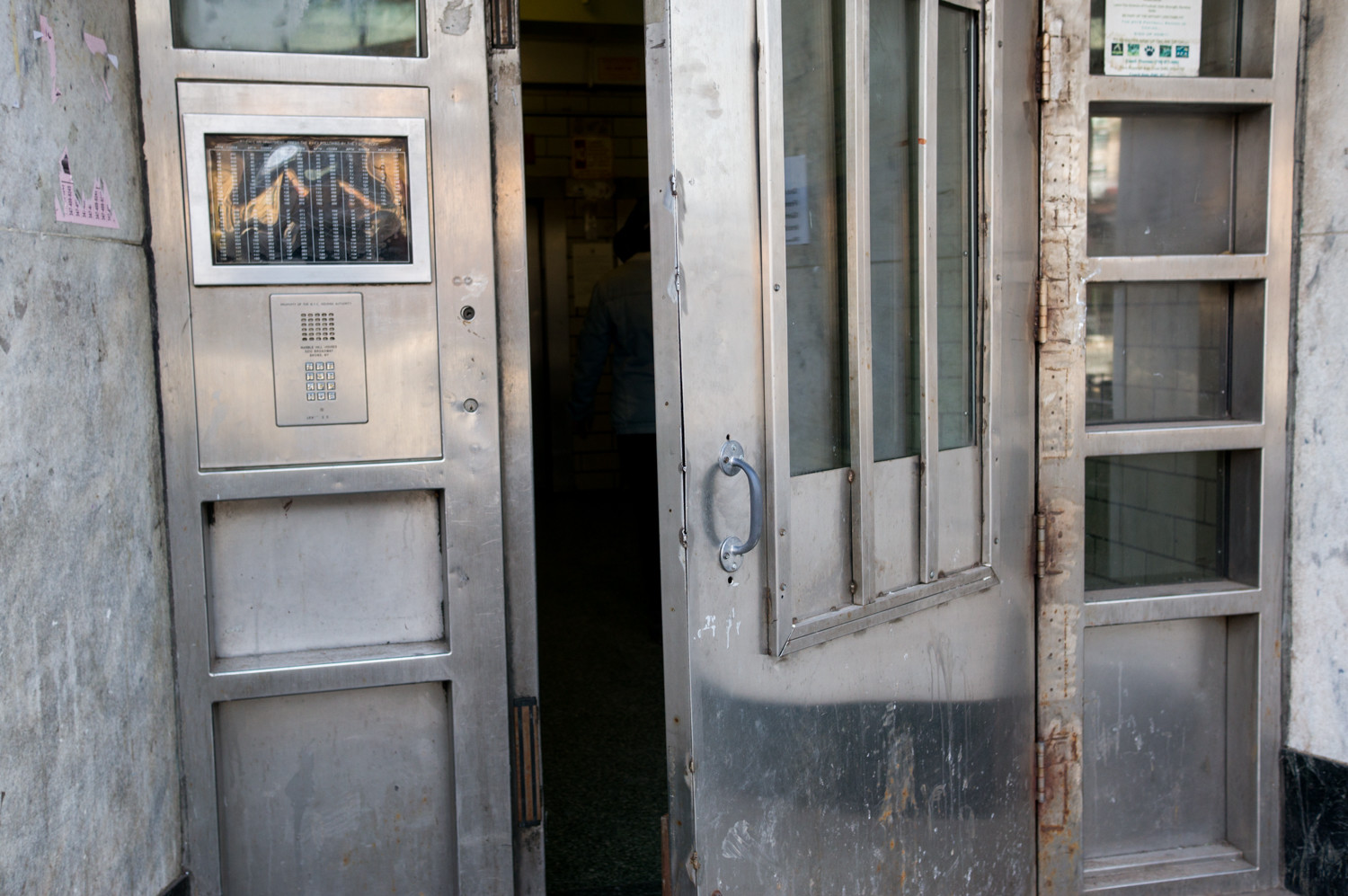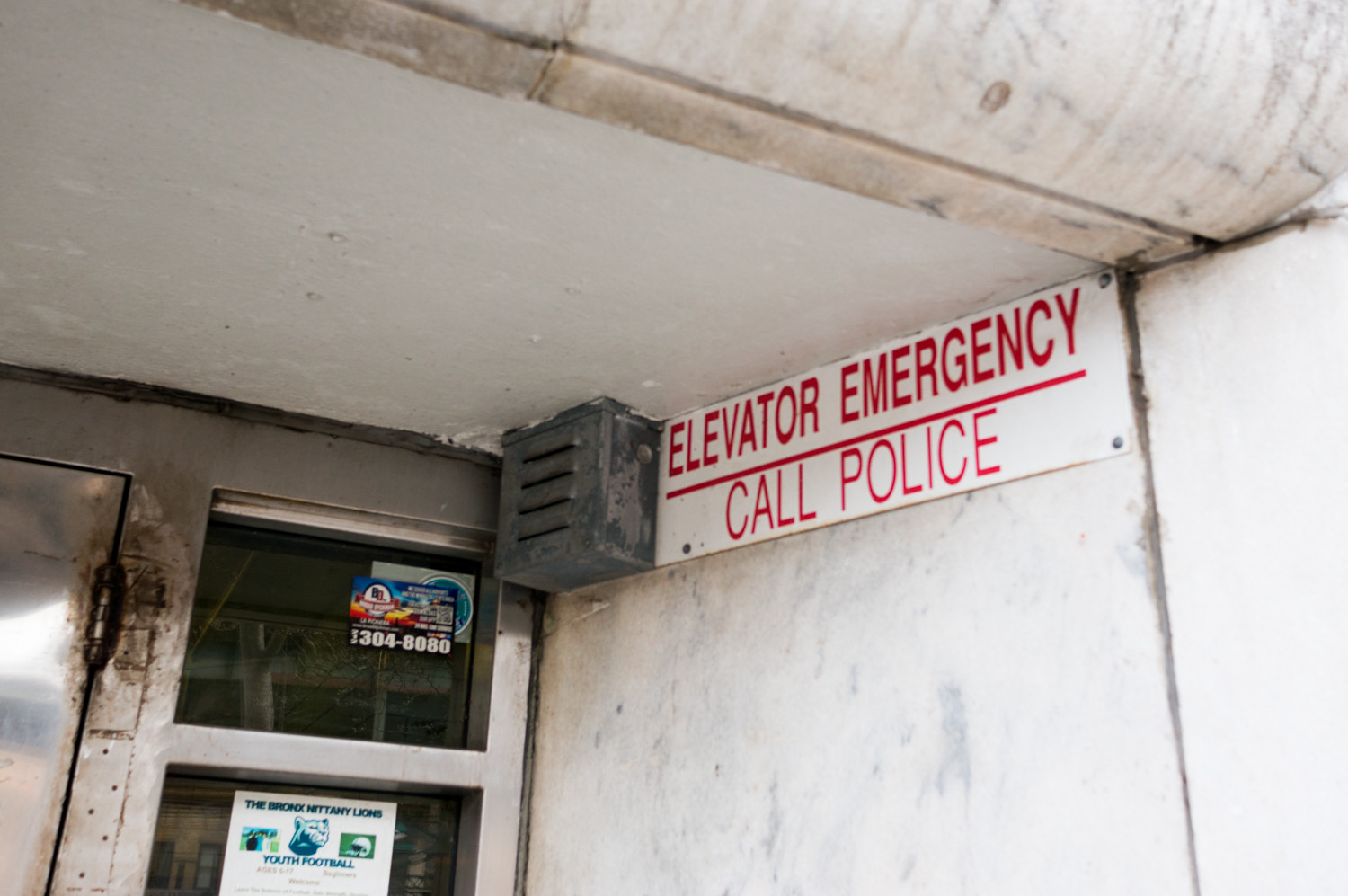Pinched for cash, NYCHA skimps on repairs
A lot of money — hundreds of millions of dollars — has been earmarked for fixing problems at Marble Hill, Fort Independence and other city public housing developments.
But those problems aren’t getting resolved, and no one’s quite sure what those millions are actually being used for.
Several residents describe to The Riverdale Press a woefully underserved public housing system where fighting for a basic measure of decency is a constant struggle.
At 5210 Broadway, where one of the Marble Hill development buildings sit, the lock on the front door is broken, making it easy for anyone to waltz in whenever they please. A sign outside instructs the reader in all capital red letters to “call police” in the event of an “elevator emergency,” and bags of garbage lay strewn to the side of the metal doors.
“Nothing is done about the doors,” said Sieta Montford, who’s lived in Marble Hill Houses for 14 years.
Heat and hot water are another problem, often functioning fine when the weather is mild, but failing during the most frigid days of winter. At one point, tenants were without stoves. Another time, Montford’s fridge “conked out,” losing $200 worth of food.
“We’re just residents that pay rent,” Montford said. “We don’t mean anything to” NYCHA management.
Conditions worsen
Francisco Rivera has called Marble Hill home for the last 39 years. In that time, living conditions, which used to be good, have deteriorated, he said. And management doesn’t help.
Elevators in 5210 Broadway were working, at least last Friday, he said, but not in other buildings. They tend to break down on a weekly basis. This creates hardships for anyone living on higher floors, especially those in wheelchairs, and the elderly.
“They really don’t care,” Rivera said of management.
NYCHA spokeswoman Valeria Munt told The Press all elevators at Marble Hill and Fort Independence houses are “currently 100 percent operational,” and that NYCHA’s “Bronx Elevator Unit” hasn’t received any formal complaints.
Although the elevators at both complexes average between 16 and 17 years old, the buildings department inspects those elevators at least twice a year, Munt added.
Yet, maintaining the buildings is an uphill climb, she said, because it’s going to take billions of dollars to make a difference across all NYCHA’s properties.
“We are fighting hard across all levels of government for the resources our residents deserve,” Munt said.
But residents like Rivera and Montford can’t empathize too much. They’re living it.
They have an ally, however: Tony Edwards, president of the Marble Hill tenants association, who not only advocates for improved living conditions, but also urges tenants to complain whenever they have an issue.
Elevators were down in his building two weeks ago for two days over the weekend, Edwards said — one from Friday to Monday, and the other from Saturday to Monday. Both were up and running again by Monday.
“I can’t say they were not properly serviced,” Edwards said. “But it’s an inconvenience when an elevator goes down — especially when you live on a higher floor.”
Still, that elevator issue was an isolated incident. The bigger issue, Edwards said, is problems with heat and hot water.
And then there’s the asbestos.
“There’s been a lot of people complaining of sickness and asthma,” Rivera said. “And when you have a broken wall or something, it takes (management) a long time to get it covered. I did it myself in my wife’s apartment, ‘cause I couldn’t wait on them. I bought the material myself.”
While elevators aren’t a primary issue at Marble Hill, they can be a nightmare for residents of Fort Independence Houses. Sometimes, three of the 21-story building’s five elevators will be down, said Barbara Lauray, who leads Fort Independence’s tenants association. That overloads the working elevators, to the point many residents are forced to take the stairs.
“We have a very big problem when it comes to the elevators,” Lauray said. “Yes, we call emergency services, and yes, they do respond. But the bottom line is we shouldn’t have to go through that.”
When people get stuck in elevators, the fire department bails them out, but also shuts the lifts down.
“So they have to be reset, people have to walk up the hill to come around to the opposite side of the building just to get an elevator upstairs,” Lauray said. “It’s unacceptable, because if we owe rent to NYCHA, you better believe they’re gonna come right at us for that rent.”
Heat is also an issue.
“We freeze because the windows are absolutely horrible,” Lauray said. “The windows have been in for maybe the last 20 years, and are so poor where you push the window open to the top and it slides down, and just a little bit of air will freeze out the apartment. Even if our radiators work here, even if we do have heat, it’s not going to do any good.”
Then there are the pipes that burst “on the regular,” Lauray said, leaving apartments flooded, sometimes several at the same time.
“People tend to think those who live in low-income housing have low incomes,” Lauray said. “I have some residents here that pay over $2,100 rent, because it goes according to their income. And they still have to walk in the building where (people have) urinated all in the elevators, (and) you have to worry about the derelicts that are on the staircase.”
Still, she insists building staff does its best to keep the place clean. But when it comes to big jobs, Lauray says NYCHA’s response has often been abysmal.
When things get too bad, Lauray does have a secret weapon: CB8.
“NYCHA doesn’t like dealing with CB8 at all,” she said. Even when CB8 steps in, however, organizing a meeting between management and tenants, “NYCHA will come up with a fix-it, a Band-Aid,” not a permanent solution.
And often it takes months to get things fixed. Long waits are exacerbated by staff shortages, and requests for major jobs go through significant amounts of red tape.
“People say because we live in NYCHA we’re lower class citizens,” Lauray said. “No, we’re not.”
CORRECTION: Valeria Munt, spokeswoman for NYCHA, said, "We are fighting hard across all levels of government for the resources our residents deserve." A story in the Jan. 25 edition quoted Munt incorrectly.













